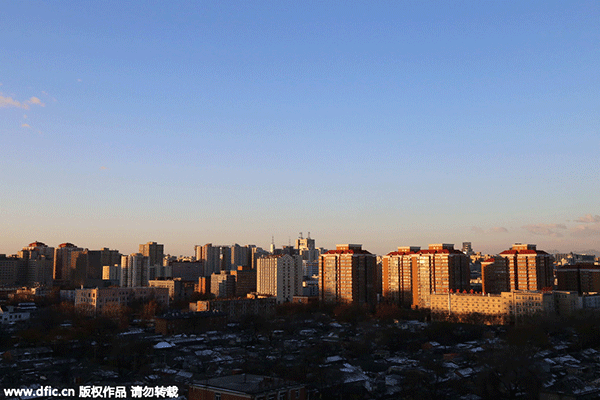 |
|
Beijing International Airport in heavy smog on Tuesday morning. [Photo from Weibo] |
It did not meet the requirement for issuing a red alert, Xinhua cited Wang Bin, director of Emergency Response Department of Beijing Municipal Environmental Protection Bureau, as saying.
According to the Beijing Municipal Severe Air Pollution Emergency Plan which took effect in March, the municipal government can issue the red alert when severe air pollution is forecast to extend for more than three days, the orange alert for three days, the yellow alert for two days and the blue alert for one day.
On Nov 27, the Beijing Municipal Environmental Monitoring Center forecast that air quality would improve on Nov 29 and issued a yellow alert.
A new forecast was made on Nov 29 which indicated severe smog would continue for the next two days and improve on Dec 2. The alert was then updated to orange.
Where do pollutants come from?
Coal use and industrial emissions are the two main pollutants, while vehicle emissions worsen the situation, according to Chinese Research Academy of Environmental Sciences.
There is a positive link between the increase of pollutants generated by coal use and the worsening of air pollution, said the Beijing Municipal Environmental Protection Bureau.
It also said unfavorable weather, with no wind and high humidity, contributed to the formation of smog.
 |
|
Clear and blue sky in Beijing on Dec 2, 2015. [Photo/IC] |
Where will the wind blow the smog to?
When a cold front approaches, the wind will lift PM2.5 higher in the atmosphere, according to a report from weather.com.cn, a website related to the China Meteorological Administration.
If wind blows horizontally, it may also take PM2.5 from the polluted area to other regions.
